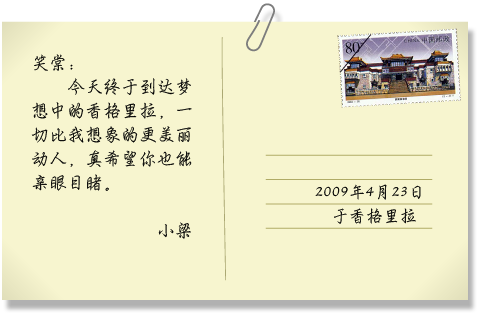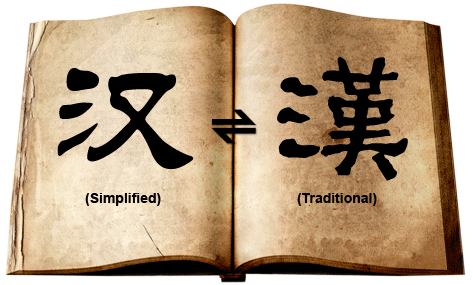
When writing in Chinese characters, there are no spaces between words. This can make it difficult to tell where one word ends and the next begins. Practice is the key. Modern Chinese in mainland China runs left to right, top to bottom (just like English text), but you will occasionally see old texts or signs printed vertically.

There are two sets of Chinese characters: simplified and traditional. Simplified characters are used in mainland China, whereas Hong Kong and Taiwan still use traditional characters. Most students of Chinese will want to study simplified characters (unless they are focused on Taiwan, Hong Kong, or Chinese history).
Standard Mandarin
You often hear about various "Chinese dialects," such as Mandarin, Cantonese, Shanghainese, and Hokkien, and you may imagine that they are as similar to each other as American English, Australian English, and British English. In actuality, they are as different as the Romance languages Spanish, Portuguese, French, Italian. Mandarin is by far the most common of the Chinese "dialects" mentioned above,  and is the official language in both mainland China and Taiwan. (Cantonese is the language of Hong Kong and Guangdong.) Mandarin is what is usually meant by "Chinese" in casual usage, and Mandarin Chinese is what is taught on ChinesePod.
and is the official language in both mainland China and Taiwan. (Cantonese is the language of Hong Kong and Guangdong.) Mandarin is what is usually meant by "Chinese" in casual usage, and Mandarin Chinese is what is taught on ChinesePod.
You will sometimes hear mentions of "standard Mandarin" in discussions about learning Chinese. China was once fractured by innumerable dialects, and a unifying dialect helped bring the nation together. Standard Mandarin, or putonghua in Chinese, was originally based on the Beijing dialect in northern China, but has long since spread throughout the country. Just as a traveler in the USA will hear the difference in the local accents of Texas, New York, California, and Boston, a visitor to China will notice differences in the Mandarin of the residents of Beijing, Shanghai, Taipei, and Sichuan. These differences add to the richness and variety of the language.
Links:
http://chinesepod.com/learn-chinese
No hay comentarios:
Publicar un comentario